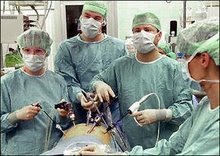Prostate cancer claims its turf silently. The tumor grows in the prostate gland discreetly without any obvious symptoms until an advanced stage of growth is reached. The symptoms that do show up at this stage are too mellow to be associated with something as serious as cancer, and men usually ignore them attributing them simply to signs of advancing age.
Any man will get Prostate Cancer if he lives long enough. How come? 70% of all men above 90 have a tumor of some kind in his prostate gland. Nobody is immune to this deadly cancer. The only means of protection is to know it in and out and to detect it early on.
Billions have been spent on researching Prostate Cancer and none of that has resulted in a solid conclusion as to how it is caused although some factors that influence its formation have been identified conclusively. For instance, the age of a person affects the probability of cancer considerably. The older you are the higher is your chance of having prostate cancer. Men of African-American descent are genetically predisposed towards prostate cancer, and so are men who habitually consume a diet rich in fat and predictably so.
It is quite possible to detect prostate cancer before it reaches an advanced stage through one of the various tests that are available. The most rudimentary of them all is the rectal analysis which is conducted to determine whether there is an enlargement of the prostate gland. The DRE, as it is referred to, is the ingenuous process of inserting a gloved and lubricated finger into the back passage to actually feel the prostate gland to determine its size. Ultrasound test, a more refined version of this test, is performed by inserting an ultrasound probe instead of the customary finger of the rectal analysis. Another noteworthy procedure that joins this league is the biopsy where small cylindrical tissue cores are extracted from the prostate gland itself by the use of a probe with a special spring loaded needle. These samples are then analyzed under a microscope to detect instances of cancerous growth.
Although these tests sound macabre and intimidating, there is a blood test that could determine Prostate Cancer. The PSA test (Prostate Specific Antigen test) is performed by extracting a blood sample from the patient and analyzing this sample for abnormally high levels of a particular antigen produced in the prostate gland, high levels of which are a telltale sign of Prostate Cancer.
When prostate cancer is detected early on, there is a very high probability of achieving a complete cure without a possibility of recurrence. Early detection of Prostate Cancer is the key to a successful cure since for a case where the tumor growth has advanced to the bones; even surgery simply fails to cut it, literally.







